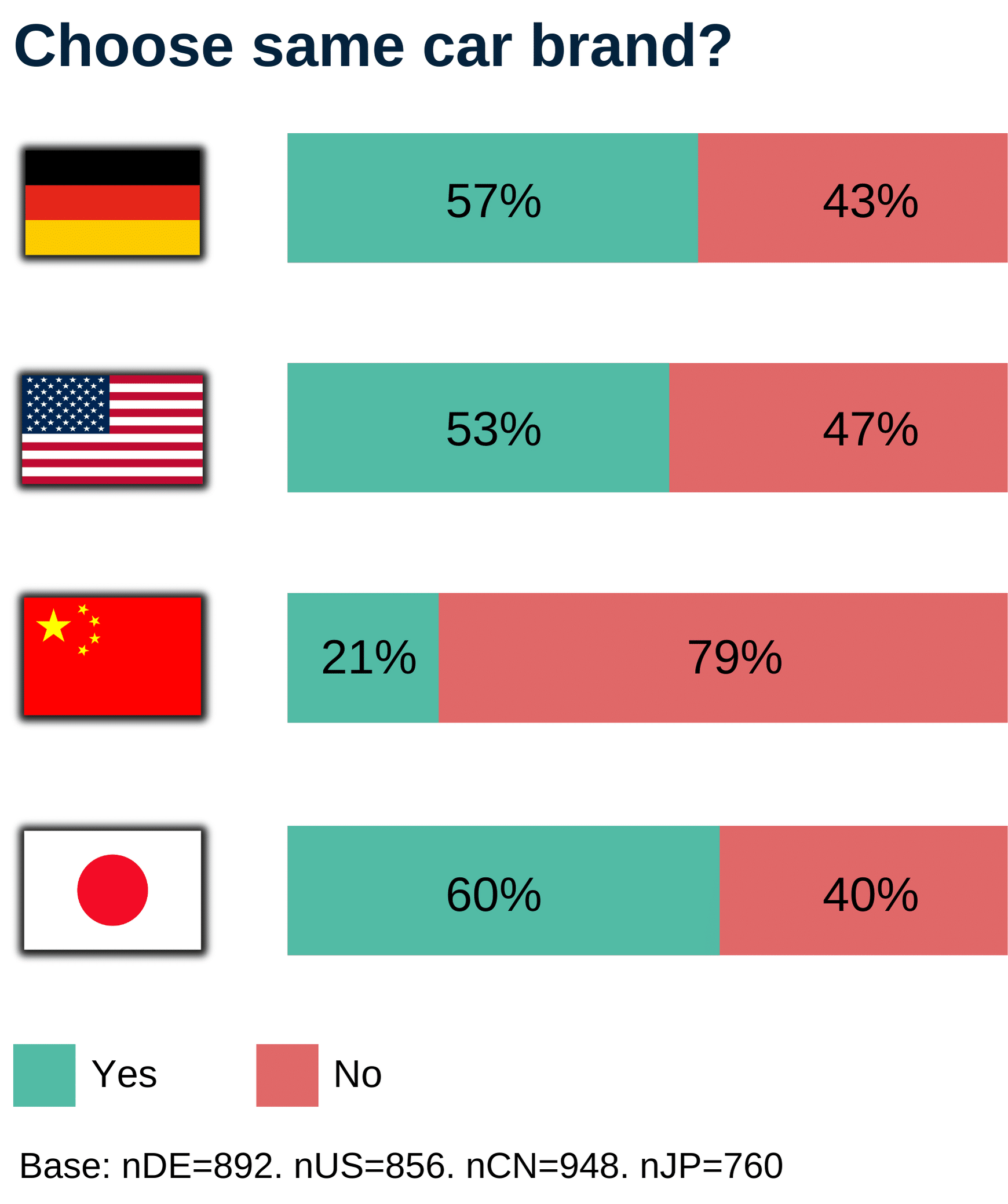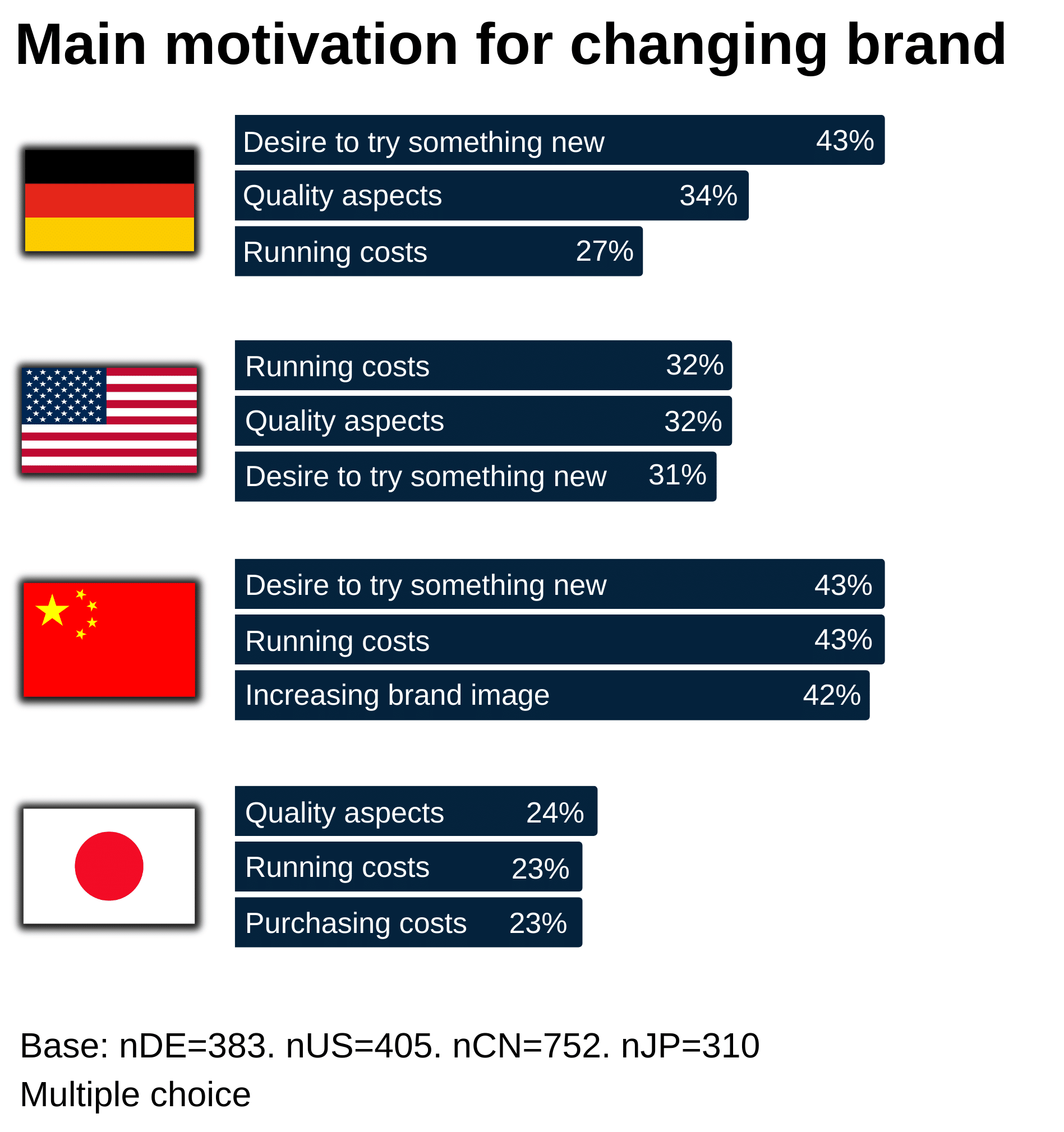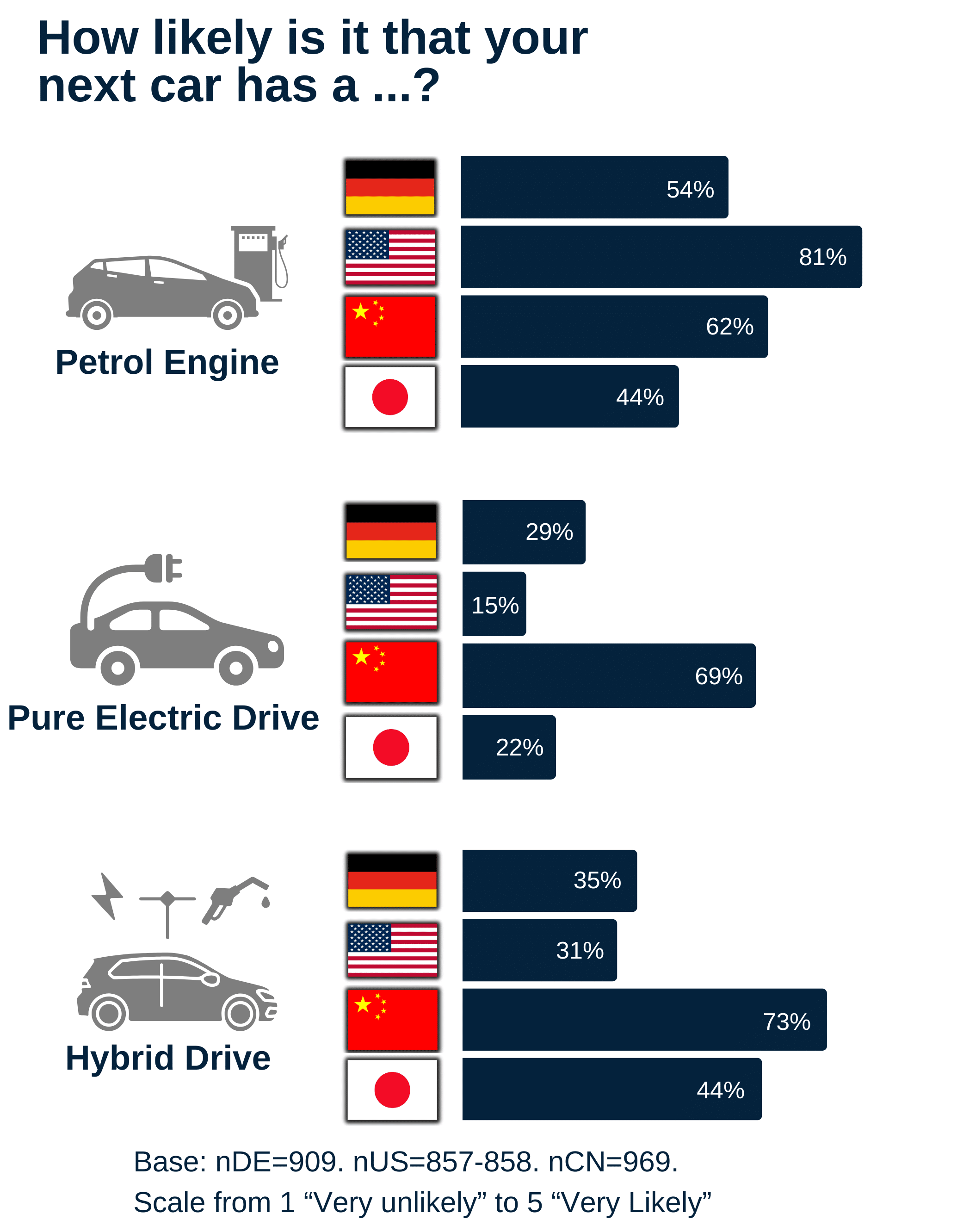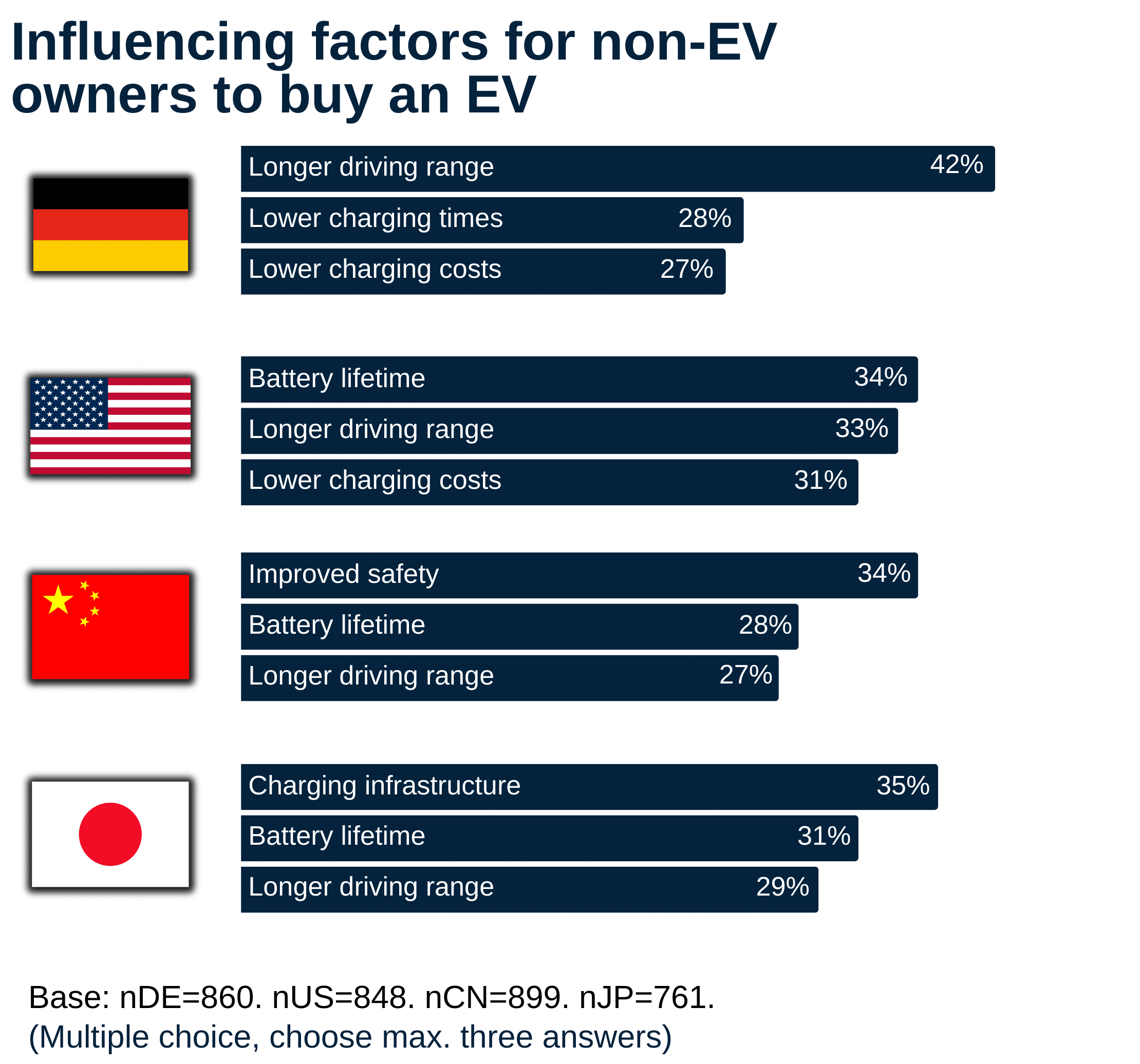Asahi Kasei’s newest global car user survey gives insights into the brand loyalty and buying behavior of car users in the four major automotive markets: Germany, the United States, China, and Japan. It also provides background information on technological reasons for consumers’ hesitance to switch to electric cars.
In its fifth annual survey the Japanese technology company Asahi Kasei asked car users in the four major automotive markets about brand loyalty and key motivators for buying electric vehicles (EVs).
The results of the newest survey confirm the trend in recent years – with tightening competition, new manufacturers, and changing customer needs, brand loyalty is wavering worldwide. More than half of the respondents in Germany and the USA plan to change the brand of their next car. Customers in China are remarkably open to switching car brands, with 79% indicating they would choose a model from a different manufacturer.
Looking at different age groups, Generation Z-respondents (born between 1995 and 2010) showed the lowest degree of brand loyalty, indicating that the younger the car users are, the less connected they feel to a certain brand.
To reignite brand loyalty, car manufacturers and suppliers must understand the end customers’ needs and find ways to differentiate from the increasing competition.
When asked about the most annoying factors in their current car, car users in all four regions cited “poor gas mileage/fuel consumption,” “not enough storage space,” and “too much noise while driving”. This was also reflected in the main motivation to change the car brand, with a third of respondents in Germany and the US citing “quality aspects” as an important factor. In addition, “running costs” are prevalent motivations in all markets. In China, the “desire to try something new” is the chief incentive for switching to a different vehicle brand – specifically to premium brands.
This coincides with the purchasing influence of “increasing brand image” by established premium car manufacturers, in contrast to volume manufacturers, who are currently losing market share in China. Since the first survey was conducted in 2020, fuel/power efficiency and running costs have been the most influential factors in the buying process. Notably, the results for all features influencing purchasing choice have been consistent across each survey.
Enhancing battery performance key for convincing potential EV buyers
Stimulated by governmental subsidies, technological improvements and a growing network of charging stations, market shares of pure electric vehicles have been slowly growing in recent years, especially in Western markets and in China. 69% of the respondents in China said it is “likely” or “very likely” that the next car has a pure electric drive. However, compared to 2020, the willingness to buy an electric vehicle has not significantly changed.
While in China and Germany it rose by 6 percentage points respectively 8 percentage points, respectively, there was a 14-percentage point decrease in the US. The fade out of governmental subsidies and the high cost of electric vehicles are key factors for this consumer sentiment at the end of 2023.
These findings indicate further technological advancements need to be achieved to convince most car users. In addition to cost aspects, further advancements in battery performance, lifetime, and safety will be needed to improve the acceptance of electric vehicles across all major regions. The main drivers for switching to an electric vehicle differ among the regions: while driving range is the major factor for car users in Germany, 34% of the respondents in the US is prioritize battery lifetime. Meanwhile, 34% of non-EV owners in China see improved safety as a primary consideration in buying an electric vehicle.




SOURCE: Asahi Kasei
